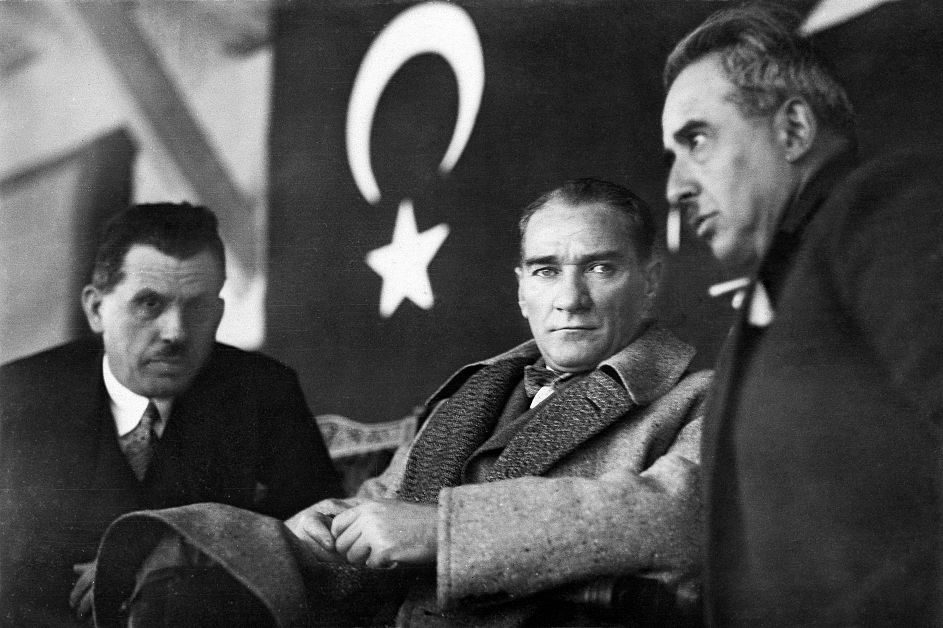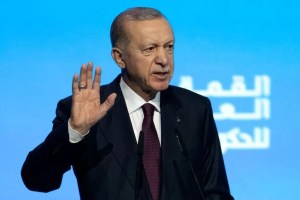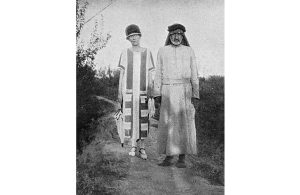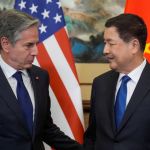It’s difficult to imagine the Middle East having reason to celebrate. It happens, however, that today is the centenary of modern Turkey, an occasion which President Erdoğan, in an uncharacteristically emollient mood, recently described as a “big embrace of 85 million people.” If Turkey’s authorities mean to mark the occasion with rallies, fireworks and festivities, it could be said they have good reason. For while war, sectarianism and displacement continue to stalk so much of what once comprised the Ottoman Empire — not only in Palestine and the Holy Land, but in Syria, Iraq and Lebanon, not to mention much of north Africa and the Arabian Peninsula — the Ottomans’ successor state may be said, at least in relative terms, to look like a welcome exception.
Turkey’s 100th birthday marks the day in 1923 when national founder Mustafa Kemal Atatürk declared the fledgling state a republic. His diktat was greeted with consternation by Turks still digesting the sultan’s flight into exile the previous year, not to mention the bombshell announcement that the capital was to be moved from Istanbul to a flyblown station stop on the Anatolian steppe: Ankara. Many had assumed that the country’s governance would be modified, perhaps into a constitutional monarchy under the leadership of the caliph, an Istanbul-based head of the global Islamic community, whose office had survived the abolition in 1922 of the Ottoman Sultanate. In fact, the caliph was also to face the erasure of his office, along with exile, as Atatürk unveiled his radical secular vision for the wholesale transformation of Turkish society.
Over the past month, which I largely spent in Turkey, I took the opportunity to ask Turks whether they saw reason to join in the centenary celebrations. The response was overwhelmingly lukewarm, if not negative. President Erdoğan’s return to power in the May elections, the dire state of the economy and the February earthquake, struck few as pretexts for any kind of partying. Others gave historical reasons to pass up on the celebrations, not least Kurds and Armenians, whose substantive claims to statehood had been steamrollered by the republic’s insistence on an exclusively Turkish state. Some opponents of President Erdogan bemoaned the fact that Atatürk’s vision was being submerged beneath a wave of Islamic fundamentalism — and others pointed out that Turkey’s defining dream of transitioning from authoritarian rule to a fully-fledged western-style democracy seemed dead. European Union membership felt as unattainable as ever.
It seems certain that life for Turks would have turned out far worse if the Great Powers had succeeded in imposing the settlement they intended for the Ottomans’ Anatolian heartlands after the Great War. Under the Treaty of Sevres, in 1920, Greece and Italy were to acquire the choicest territories, or at least zones of influence, along Turkey’s Aegean and Mediterranean littorals — and for no better reason than to acknowledge the region’s Byzantine and Roman heritages. Britain and France would get strategic chunks along the borders with Iraq and Syria. Once the Armenians and possibly the Kurds were given homelands of their own in the east, the Turks were to be left with a much-reduced rump state across north and central Anatolia, almost only on the basis that nobody else had laid claim to it.
We should celebrate the fact that Sevres, famously signed in a French porcelain factory, was never ratified. Such a partitioning would have turned out disastrously. Victory by Atatürk’s forces against the Greeks in the 1919-22 war led to another treaty, Lausanne, whereby the Turks took possession of all Anatolia. Ceding national territories to both Kurds and Armenians in the east may have saved Turkey decades of bloody insurrection, and perpetual enmity — and in his hour of victory the admirably pragmatic Atatürk could have taken the adjacent former Ottoman territories like the nearby Greek islands or the Mosul oil fields — but Turkey, within those Lausanne borders, has proved broadly workable. With the exception of the annexation of the Hatay enclave from Syria in 1939, the national borders have remained unchanged ever since that treaty.
Much remains unresolved, of course. There appears to be no prospect of a Kurdish settlement, neither of any official acknowledgement of what Turks will not call the Armenian Genocide, nor a final settlement of the Cyprus issue. President Erdoğan’s vision for Turkey’s future appears profoundly at odds with that of Atatürk. The media is largely controlled by the state. The judiciary has a hateful record of imprisoning writers, human rights activists and opposition politicians. But at least the electoral process appears to function. When Erdoğan’s governing party won this year’s May elections, the opposition might have grumbled, but it also conceded.
Perhaps these are qualified achievements. Perhaps some Turks, mindful of the transformative pace Ataturk set from the 1920s, might have expected more of their country on its 100th birthday. But given the degree to which other parts of the former Ottoman Empire are currently unraveling, I will raise a glass to Turkey today.
This article was originally published on The Spectator’s UK website.


















